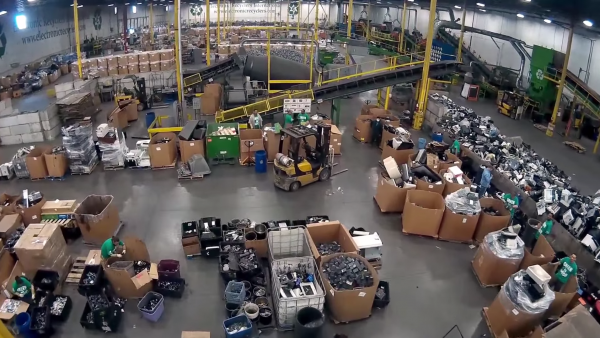
A Department of Homeland Security-sponsored campaign now counts ERI among its educators.
ERI has joined the Stop. Think. Connect. Campaign, which is in its seventh year of providing tips and resources to fight cyber crime by encouraging stronger security measures among the public.
The campaign was created by a coalition of private companies, nonprofits and government organizations and is led by the Department of Homeland Security, the National Cyber Security Alliance and the Anti-Phishing Work Group.
A number of ERI’s clients are active participants in the program, and they recommended ERI get involved to help spread the word, said David Hirschler, ERI’s director of sustainability.
“Essentially, the way we see it is it’s part of a growing need to help people both on the residential consumer side and on the commercial side to really make sure they are protecting their data,” Hirschler told E-Scrap News.
The educational campaign covers all facets of cybersecurity, although its public resources focus mostly on staying safe while using a device.
Fresno, Calif.-based ERI is involved to focus on the data-destruction component, which is frequently one of the less-thought-of types of protection. Device users often know to have a strong password, Hirschler said, and many know about various types of encryption to protect their data. But once equipment has reached the end of its life, “the question is ‘now I’m done with this data, what do I do with it?’” Hirschler said. “It’s something that’s been an ongoing issue in the cybersecurity field.”
To help get that message into the Department of Homeland Security campaign, ERI produced several graphic tip sheets, including one that describes the amount of information testers have retrieved from discarded hard drives. It details the paper equivalent volume of digital data and offers a list of tips for companies to ensure they are following the best data-destruction practices.
“Our focus is don’t just protect yourself at the beginning, protect yourself at the end,” Hirschler said.
* Although we have archived this news article on our website, the original article may no longer exist.